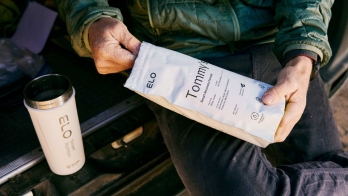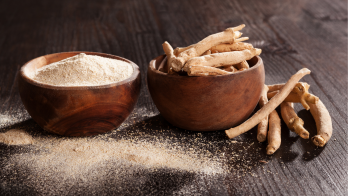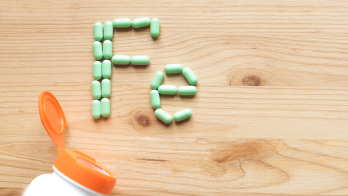The best supplements to boost immunity that are not vitamin C
Want to optimize your immune system to stay healthy or kick that cold a bit quicker? Getting enough vitamin C can help, but it isn’t the only immune-enhancer out there. Here are seven other best supplements to boost immunity you may also want to consider.
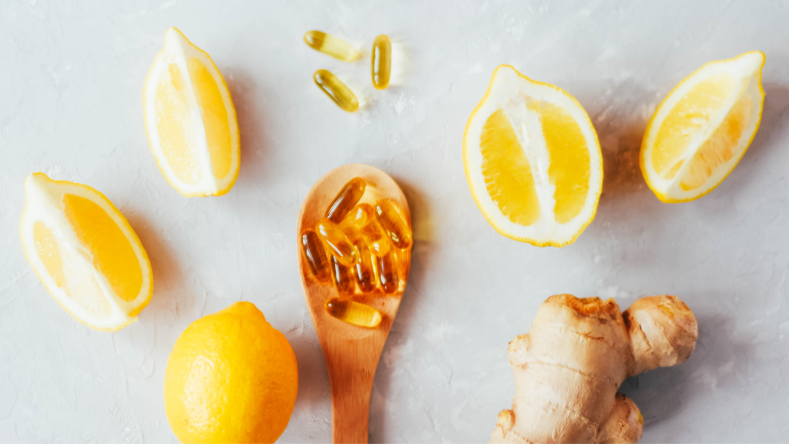
A strong immune system is key to preventing infection and disease. While getting enough sleep exercise eating nutritious foods
So, what are the best supplements to boost immunity? Whether you want to level up your immunity or kick that cold a bit quicker, here are the best science-backed, immunity-enhancing supplements to consider that are not vitamin C.
Curious how else you can boost your immunity? Here are six more
unique, science-backed ways to enhance immune function
.
How to find the best supplements to boost immunity
With so many supplements on the market, it’s virtually impossible to decide which ones you should take, when you need to take them, and what you should take them with. So how do you sort through the noise and find the best supplements to boost immunity, improve sleep, enhance sports performance, and reduce stress?
At Elo, we address these concerns and more by providing personalized smart supplements at-home blood testing biomarkers 1:1 dietitian support with our Elo Health coaches
Get your personalized supplements started today!
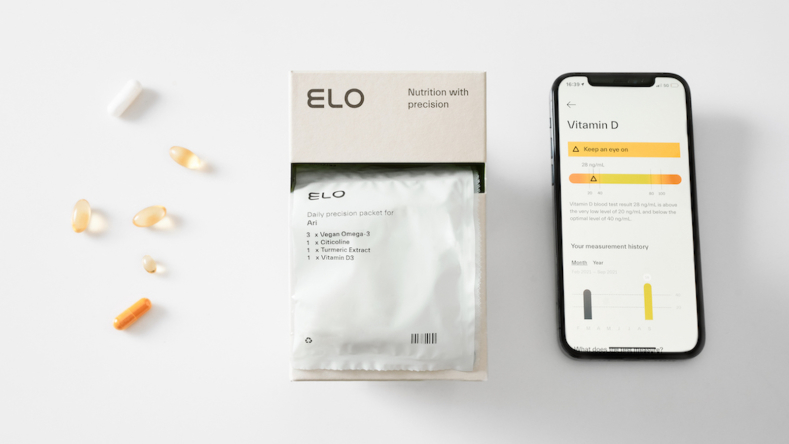
Vitamin D
Vitamin D 1 2 3
Vitamin D plays an important role in immune function, reducing inflammation and modulating growth and development. As such, low vitamin D levels can reduce immune function and have significant health consequences.
For example, studies show vitamin D deficiency is associated with an increased risk of infection and higher rates of certain autoimmune diseases [ 4 5 4
Dosing recommendations
The Recommended Dietary Allowance (RDA) for people between the ages of 1 and 70 is 600 IU/day, and for adults over 70, the RDA is 800 IU/day [ 10 6 7 8 9
For most, a supplement providing 1,000–2,000 IU/day of vitamin D3 is sufficient to meet most people’s needs; however, individuals with moderate to severe deficiency may need a higher dose [ 10
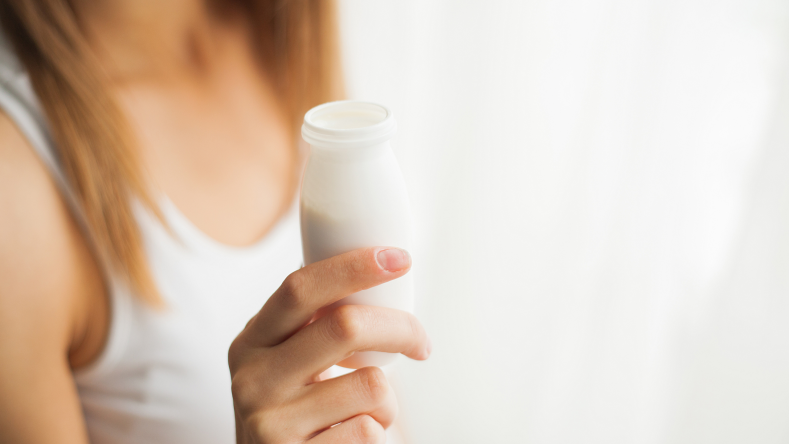
Probiotics
Studies show probiotics 11
In children, probiotic supplementation may reduce the risk of respiratory infections and may also shorten the duration of some viral respiratory illnesses [ 12
In adults, studies indicate probiotics may enhance the body’s immune response to the flu shot. For example, in one trial, adults given probiotics or prebiotics showed significant improvements in protection against multiple strains, including H1N1, H3N2, and influenza B [ 13
Probiotics (specifically Lactobacillus rhamnosus GR-1 and L. reuteri RC-14) may also bolster the body’s immune defenses against urinary tract infections (UTIs) in women [ 14
The key to choosing the best probiotics to boost immunity is selecting the strain (or strains) that has been proven beneficial for your specific need and making sure your supplement contains an adequate amount of microorganisms.
Not sure which probiotic you should take? Find out with Elo’s 1:1 dietitian support and
Smart Supplements
.
Dosing recommendations
Choosing a probiotic supplement can be challenging since strain type and dose size significantly affects whether a probiotic will have any benefit. The key to choosing the best probiotic for immune health is selecting the strain (or strains) that have been proven beneficial for this purpose.
For flu-fighting benefits, Lactobacillus casei, L. paracasei, and Bifidobacterium longum seem to be the most effective of the strains studied.
For UTIs, Lactobacillus rhamnosus GR-1 and L. reuteri RC-14 seem effective.
A daily dose of 1 billion Lactobacillus GG may reduce the risk of respiratory infections in children.
Many probiotic supplements contain 1 to 10 billion CFU per dose, whereas some products contain 50 billion or more. While it’s crucial your supplement contains enough live microbes to be effective, higher CFU counts do not necessarily produce greater health benefits [ 42
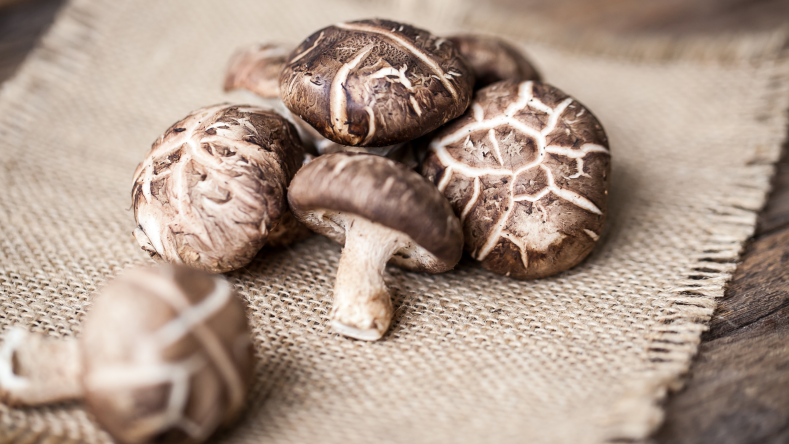
Medicinal mushrooms
Medicinal mushrooms have incredible health benefits and can be a supportive sidekick for your immune system. Five fungi, in particular, have been shown to have the following immune-boosting benefits.
Reishi: Reishi mushrooms (Ganoderma lucidum) have long been used in Eastern medicine to promote health and longevity [
15
]. Studies show Reishi mushrooms may boost the immune system and even fight cancer [16
,17
].Maitake: Maitake mushrooms have also been used in Eastern medicine to promote immune function for centuries. Research suggests these mighty mushrooms might play a role in healthy immune function and cancer prevention [
18
,19
].Turkey tail: Turkey tail mushrooms contain a potent compound called polysaccharide-K that gives this fungus its high antioxidant and anti-cancer properties. Research suggests it may also improve the immune system of those receiving chemotherapy [
20
].Chaga: Studies show Chaga mushrooms are packed full of antioxidants that can help reduce oxidative stress and inflammation, which negatively affect the immune system [
21
,22
]. Preliminary studies in mice suggest Chaga may also help prevent some forms of cancer, but more studies are needed to see if the benefits also apply to humans [23
,24
].Shitake: Shitake mushrooms also appear to play a role in immunity. One study found that people who consumed two dried shiitakes each day experienced a decrease in inflammation and an increase in immune markers [
25
].
For more on medicinal mushrooms, including how to take them to support a healthy immune system, check out
the ultimate guide to medicinal mushrooms
.
Dosing recommendations
When choosing medicinal mushroom supplements, in capsule or powder form, which you can add to teas, smoothies, or soup broth.
Dosing recommendations vary widely between mushroom varieties, supplement forms, and brands. For this reason, it’s recommended you read supplement labels and follow dosing recommendations closely.
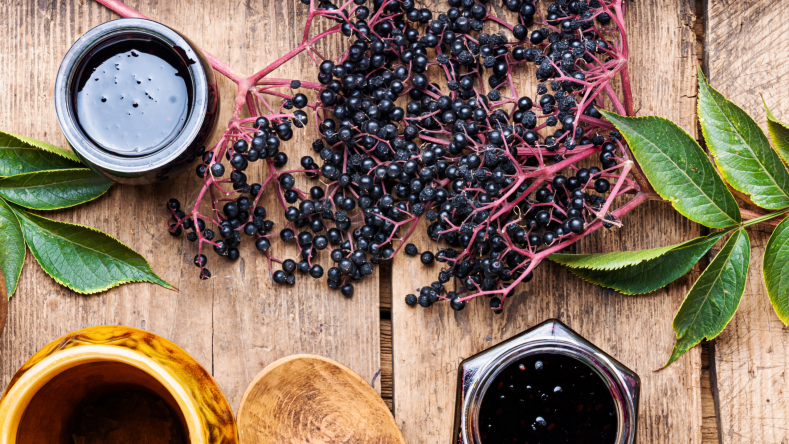
Elderberry
Black elderberry (Sambucus nigra) has long been used to treat infections and is being investigated for its effects on immune health.
This unique berry extract has potent antibacterial and antiviral properties, particularly against pathogens responsible for upper respiratory infections. Studies have found it may be beneficial for treating respiratory infections, potentially shortening the duration and severity of colds and reducing respiratory symptoms [ 27 28 29
Compared to oseltamivir (Tamiflu), elderberry may also be associated with a lower risk of influenza complications and adverse events [ 29
Dosing recommendations
There is no standard dosing recommendation for elderberry. For immune benefits against the flu, some studies have found benefits with 4 tablespoons of elderberry extract syrup divided into four doses [ 46
Elderberry supplements appear to be safe when used daily for up to 5 days; however, its long-term safety is unknown [ 46
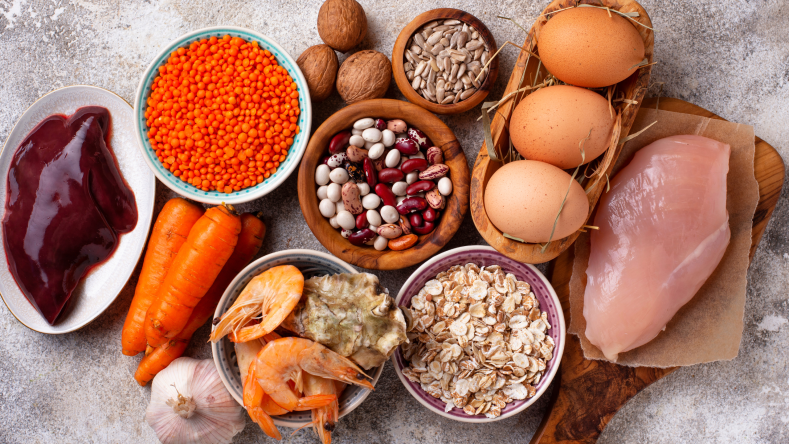
Zinc
Zinc is a mineral that’s long been known to boost your immune system. It is essential in immune cell development, communication, and the body’s inflammatory response and also protects tissue barriers that prevent harmful pathogens from entering the body [ 30
Like vitamin D, not getting enough zinc can significantly reduce immune function and increase the risk of infection and disease, including pneumonia [ 31 32
Several studies also show zinc supplements may also protect against and reduce the duration of some respiratory tract infections like the common cold [ 33 34 35
Dosing recommendations
Taking 5–10 mg/day of zinc appears adequate as a daily preventive. If you are at risk for, or have a zinc deficiency, a higher dosage of 25-45 mg/day might be necessary [ 45
Zinc lozenges taken to reduce symptoms of the common cold appear to be most effective when the daily dose is over 75 mg and is divided over 6-8 doses, each separated by 2-3 hours. Because this dose is higher than the 40 mg Tolerable Upper Limit of zinc, prolonged intake of large amounts of zinc from supplements or lozenges is likely unsafe [ 45
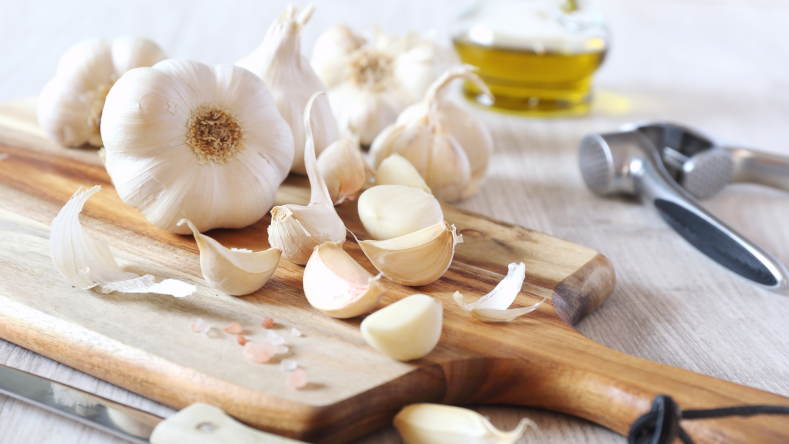
Garlic
Though it may get a bad rap for giving you stinky breath, garlic has powerful anti-inflammatory and antiviral properties that may also enhance immune function.
Research shows this health-boosting bulb has antiviral, antifungal, and antibacterial properties and may also stimulate protective immune cells and help reduce the severity of cold and flu symptoms [ 36 37
Dosing recommendations
Powdered garlic, aged garlic extract, and garlic oil are three common forms of garlic supplements.
Research suggests aged garlic extract may offer the greatest health benefits. Studies looking at the immune benefits of aged garlic extract have found benefits at dosages ranging from 500 mg to 2,560 mg/day [ 44
Garlic supplements can be toxic in very high amounts, so be sure not to exceed supplement dosage recommendations.
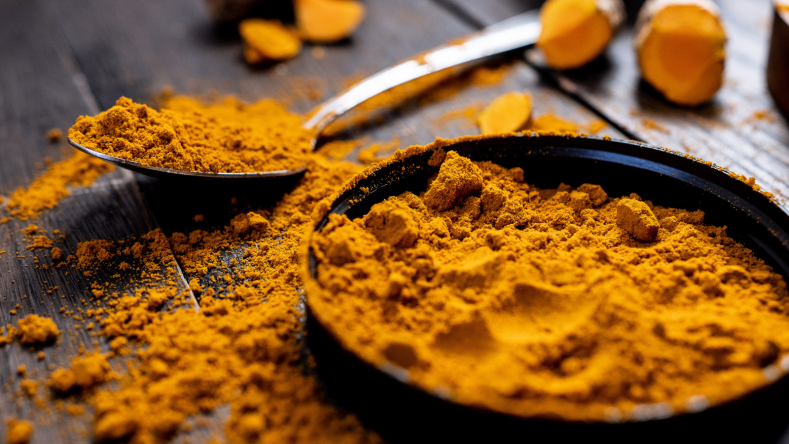
Turmeric (Curcumin)
Best known for its anti-inflammatory effects, turmeric
Studies show curcumin, turmeric’s primary bioactive compound, can modulate the activation of key immune cells, including T cells, B cells, macrophages, neutrophils, natural killer cells, and dendritic cells. At low doses, curcumin can also enhance antibody response. [ 38
Curcumin can also reduce the expression of various proinflammatory cytokines that are largely responsible for the development of chronic inflammation [ 38 39 40
Dosing recommendations
Turmeric supplements are available in different dosages and contain varying amounts of curcumin. For instance, studies have shown that supplements that provide 500-1,500 mg of curcumin/day have been associated with numerous benefits related to inflammation and a healthy immune system [ 41
Summary
Sleep, exercise, and a healthy diet are foundational to a healthy immune system. Still, significant research shows certain vitamins, minerals, medicinal plants, and even good bacteria can support immune health. From vitamin D and probiotics, to medicinal mushrooms, elderberry, zinc, garlic, and curcumin— our expert dietitians at Elo Health can help you determine which supplements might give you the biggest immune boost.
Disclaimer: The text, images, videos, and other media on this page are provided for informational purposes only and are not intended to treat, diagnose, or replace personalized medical care.
Key takeaways
Early studies have found having higher levels of vitamin D may lower the risk of COVID-19 infection and reduce its severity.
Probiotics can support immune health by inhibiting the growth and adhesion of harmful pathogens and enhancing specific immune cells' response.
Several medicinal mushrooms and curcumin, the main bioactive in turmeric, have been shown to support immune function and possibly have anti-cancer benefits.
Elderberry extract, zinc, and garlic may help your immune system fight certain upper respiratory infections, including the common cold and flu.
Elo
can help you optimize your immunity withpersonalized smart supplements
and 1:1 dietitian support.
References
Vitamin D. (2021, February 9). Mayo Clinic. Retrieved March 29, 2022, from https://www.mayoclinic.org/drugs-supplements-vitamin-d/art-20363792
Nair, R., & Maseeh, A. (2012). Vitamin D: The "sunshine" vitamin. Journal of pharmacology & pharmacotherapeutics, 3(2), 118–126. https://doi.org/10.4103/0976-500X.95506
Siddiqee, M. H., Bhattacharjee, B., Siddiqi, U. R., & MeshbahurRahman, M. (2021). High prevalence of vitamin D deficiency among the South Asian adults: a systematic review and meta-analysis. BMC Public Health, 21(1). https://doi.org/10.1186/s12889-021-11888-1
Demir, M., Demir, F., & Aygun, H. (2021). Vitamin D deficiency is associated with COVID-19 positivity and severity of the disease. Journal of medical virology, 93(5), 2992–2999.
https://doi.org/10.1002/jmv.26832
Yang, C. Y., Leung, P. S., Adamopoulos, I. E., & Gershwin, M. E. (2013). The implication of vitamin D and autoimmunity: a comprehensive review. Clinical reviews in allergy & immunology, 45(2), 217–226.
https://doi.org/10.1007/s12016-013-8361-3
Patel, K. (2022, March 28). Vitamin D. Examine.Com. Retrieved March 29, 2022, from https://examine.com/supplements/vitamin-d/
Aloia, J. F., Patel, M., Dimaano, R., Li-Ng, M., Talwar, S. A., Mikhail, M., Pollack, S., & Yeh, J. K. (2008). Vitamin D intake to attain a desired serum 25-hydroxyvitamin D concentration. The American journal of clinical nutrition, 87(6), 1952–1958. https://doi.org/10.1093/ajcn/87.6.1952
Talwar, S. A., Aloia, J. F., Pollack, S., & Yeh, J. K. (2007). Dose response to vitamin D supplementation among postmenopausal African American women. The American journal of clinical nutrition, 86(6), 1657–1662. https://doi.org/10.1093/ajcn/86.5.1657
Ekwaru, J. P., Zwicker, J. D., Holick, M. F., Giovannucci, E., & Veugelers, P. J. (2014). The importance of body weight for the dose response relationship of oral vitamin D supplementation and serum 25-hydroxyvitamin D in healthy volunteers. PloS one, 9(11), e111265. https://doi.org/10.1371/journal.pone.0111265
Office of Dietary Supplements - Vitamin D. (2021, August 17). National Institutes of Health. Retrieved March 29, 2022, from https://ods.od.nih.gov/factsheets/VitaminD-HealthProfessional/
Reid, G., Jass, J., Sebulsky, M. T., & McCormick, J. K. (2003). Potential uses of probiotics in clinical practice. Clinical microbiology reviews, 16(4), 658–672.
https://doi.org/10.1128/CMR.16.4.658-672.2003
Hojsak, I., Snovak, N., Abdović, S., Szajewska, H., Misak, Z., & Kolacek, S. (2010). Lactobacillus GG in the prevention of gastrointestinal and respiratory tract infections in children who attend day care centers: a randomized, double-blind, placebo-controlled trial. Clinical nutrition (Edinburgh, Scotland), 29(3), 312–316.
https://doi.org/10.1016/j.clnu.2009.09.008
Lei, W. T., Shih, P. C., Liu, S. J., Lin, C. Y., & Yeh, T. L. (2017). Effect of Probiotics and Prebiotics on Immune Response to Influenza Vaccination in Adults: A Systematic Review and Meta-Analysis of Randomized Controlled Trials. Nutrients, 9(11), 1175.
https://doi.org/10.3390/nu9111175
Falagas, M. E., Betsi, G. I., Tokas, T., & Athanasiou, S. (2006). Probiotics for prevention of recurrent urinary tract infections in women: a review of the evidence from microbiological and clinical studies. Drugs, 66(9), 1253–1261.
https://doi.org/10.2165/00003495-200666090-00007
Wachtel-Galor S, Yuen J, Buswell JA, et al. Ganoderma lucidum (Lingzhi or Reishi): A Medicinal Mushroom. In: Benzie IFF, Wachtel-Galor S, editors. Herbal Medicine: Biomolecular and Clinical Aspects. 2nd edition. Boca Raton (FL): CRC Press/Taylor & Francis; 2011. Chapter 9. Available from:
https://www.ncbi.nlm.nih.gov/books/NBK92757/
Lin Z. B. (2005). Cellular and molecular mechanisms of immuno-modulation by Ganoderma lucidum. Journal of pharmacological sciences, 99(2), 144–153. https://doi.org/10.1254/jphs.crj05008x
Sliva D. Ganoderma lucidum (Reishi) in cancer treatment. Integr Cancer Ther. 2003 Dec;2(4):358-64. doi: 10.1177/1534735403259066. https://pubmed.ncbi.nlm.nih.gov/14713328/
Guggenheim, A. G., Wright, K. M., & Zwickey, H. L. (2014). Immune Modulation From Five Major Mushrooms: Application to Integrative Oncology. Integrative medicine (Encinitas, Calif.), 13(1), 32–44. https://www.ncbi.nlm.nih.gov/pmc/articles/PMC4684115/
Alonso, E. N., Orozco, M., Nieto, A. E., & Balogh, G. A. (2013). Genes related to suppression of malignant phenotype induced by Maitake D-fraction in breast cancer cells. Journal of Medicinal Food, 16(7), 602–617.
https://doi.org/10.1089/jmf.2012.0222
Krestin. Krestin - an overview | ScienceDirect Topics. (n.d.). Retrieved May 26, 2022, from
https://www.sciencedirect.com/topics/medicine-and-dentistry/krestin
Najafzadeh, M., Reynolds, P. D., Baumgartner, A., Jerwood, D., & Anderson, D. (2007). Chaga mushroom extract inhibits oxidative DNA damage in lymphocytes of patients with inflammatory bowel disease. BioFactors (Oxford, England), 31(3-4), 191–200. https://doi.org/10.1002/biof.5520310306
Javed, S., Mitchell, K., Sidsworth, D., Sellers, S. L., Reutens-Hernandez, J., Massicotte, H. B., Egger, K. N., Lee, C. H., & Payne, G. W. (2019). Inonotus obliquus attenuates histamine-induced microvascular inflammation. PloS one, 14(8), e0220776.
https://doi.org/10.1371/journal.pone.0220776
Arata, S., Watanabe, J., Maeda, M., Yamamoto, M., Matsuhashi, H., Mochizuki, M., Kagami, N., Honda, K., & Inagaki, M. (2016). Continuous intake of the Chaga mushroom (Inonotus obliquus) aqueous extract suppresses cancer progression and maintains body temperature in mice. Heliyon, 2(5), e00111.
https://doi.org/10.1016/j.heliyon.2016.e00111
Youn, M. J., Kim, J. K., Park, S. Y., Kim, Y., Kim, S. J., Lee, J. S., Chai, K. Y., Kim, H. J., Cui, M. X., So, H. S., Kim, K. Y., & Park, R. (2008). Chaga mushroom (Inonotus obliquus) induces G0/G1 arrest and apoptosis in human hepatoma HepG2 cells. World journal of gastroenterology, 14(4), 511–517.
https://doi.org/10.3748/wjg.14.511
Dai, X., Stanilka, J. M., Rowe, C. A., Esteves, E. A., Nieves, C., Jr, Spaiser, S. J., Christman, M. C., Langkamp-Henken, B., & Percival, S. S. (2015). Consuming Lentinula edodes (Shiitake) Mushrooms Daily Improves Human Immunity: A Randomized Dietary Intervention in Healthy Young Adults. Journal of the American College of Nutrition, 34(6), 478–487.
https://doi.org/10.1080/07315724.2014.950391
Krawitz, C., Mraheil, M. A., Stein, M., Imirzalioglu, C., Domann, E., Pleschka, S., & Hain, T. (2011). Inhibitory activity of a standardized elderberry liquid extract against clinically-relevant human respiratory bacterial pathogens and influenza A and B viruses. BMC complementary and alternative medicine, 11, 16.
https://doi.org/10.1186/1472-6882-11-16
Frøkiær, H., Henningsen, L., Metzdorff, S. B., Weiss, G., Roller, M., Flanagan, J., Fromentin, E., & Ibarra, A. (2012). Astragalus root and elderberry fruit extracts enhance the IFN-β stimulatory effects of Lactobacillus acidophilus in murine-derived dendritic cells. PloS one, 7(10), e47878.
https://doi.org/10.1371/journal.pone.0047878
Tiralongo, E., Wee, S. S., & Lea, R. A. (2016). Elderberry Supplementation Reduces Cold Duration and Symptoms in Air-Travellers: A Randomized, Double-Blind Placebo-Controlled Clinical Trial. Nutrients, 8(4), 182.
https://doi.org/10.3390/nu8040182
Wieland, L. S., Piechotta, V., Feinberg, T., Ludeman, E., Hutton, B., Kanji, S., Seely, D., & Garritty, C. (2021). Elderberry for prevention and treatment of viral respiratory illnesses: a systematic review. BMC complementary medicine and therapies, 21(1), 112.
https://doi.org/10.1186/s12906-021-03283-5
Wessels, I., Maywald, M., & Rink, L. (2017). Zinc as a Gatekeeper of Immune Function. Nutrients, 9(12), 1286.
https://doi.org/10.3390/nu9121286
Saper, R. B., & Rash, R. (2009). Zinc: an essential micronutrient. American family physician, 79(9), 768–772.
Barnett, J. B., Hamer, D. H., & Meydani, S. N. (2010). Low zinc status: a new risk factor for pneumonia in the elderly?. Nutrition reviews, 68(1), 30–37.
https://doi.org/10.1111/j.1753-4887.2009.00253.x
Prasad A. S. (2009). Zinc: role in immunity, oxidative stress and chronic inflammation. Current opinion in clinical nutrition and metabolic care, 12(6), 646–652.
https://doi.org/10.1097/MCO.0b013e3283312956
Martinez-Estevez, N. S., Alvarez-Guevara, A. N., & Rodriguez-Martinez, C. E. (2016). Effects of zinc supplementation in the prevention of respiratory tract infections and diarrheal disease in Colombian children: A 12-month randomised controlled trial. Allergologia et immunopathologia, 44(4), 368–375.
https://doi.org/10.1016/j.aller.2015.12.006
Hemilä H. (2017). Zinc lozenges and the common cold: a meta-analysis comparing zinc acetate and zinc gluconate, and the role of zinc dosage. JRSM open, 8(5), 2054270417694291.
https://doi.org/10.1177/2054270417694291
Harris, J., S., C., S., P., & D., L. (2001). Antimicrobial properties of Allium sativum (garlic). Applied Microbiology and Biotechnology, 57(3), 282–286.
https://doi.org/10.1007/s002530100722
Nantz, M. P., Rowe, C. A., Muller, C. E., Creasy, R. A., Stanilka, J. M., & Percival, S. S. (2012). Supplementation with aged garlic extract improves both NK and γδ-T cell function and reduces the severity of cold and flu symptoms: A randomized, double-blind, placebo-controlled nutrition intervention. Clinical Nutrition, 31(3), 337–344.
https://doi.org/10.1016/j.clnu.2011.11.019
Jagetia, G. C., & Aggarwal, B. B. (2007). "Spicing up" of the immune system by curcumin. Journal of clinical immunology, 27(1), 19–35.
https://doi.org/10.1007/s10875-006-9066-7
News-Medical.net. (n.d.). Pro and anti-inflammatory cytokines in chronic inflammation.
https://www.news-medical.net/Pro-and-anti-inflammatory-cytokines-in-chronic-inflammation
Furman, D., Campisi, J., Verdin, E., Carrera-Bastos, P., Targ, S., Franceschi, C., Ferrucci, L., Gilroy, D. W., Fasano, A., Miller, G. W., Miller, A. H., Mantovani, A., Weyand, C. M., Barzilai, N., Goronzy, J. J., Rando, T. A., Effros, R. B., Lucia, A., Kleinstreuer, N., & Slavich, G. M. (2019). Chronic inflammation in the etiology of disease across the life span. Nature Medicine, 25(12), 1822–1832.
https://doi.org/10.1038/s41591-019-0675-0
Patel, K. (2022a, March 18). Curcumin. Examine.Com. Retrieved April 28, 2022, from
https://examine.com/supplements/curcumin
Office of Dietary Supplements - Probiotics. (2022, June 2). National Institutes of Health (NIH). Retrieved June 15, 2022, from
https://ods.od.nih.gov/factsheets/Probiotics-HealthProfessional/
Percival S. S. (2016). Aged Garlic Extract Modifies Human Immunity. The Journal of nutrition, 146(2), 433S–436S.
https://doi.org/10.3945/jn.115.210427
Solomon, T., PhD & Examine.com. (2022, December 22). Garlic. Examine.
https://examine.com/foods/garlic/
Murray, M. R. & Examine.com. (2022, September 28). Zinc. Examine.
https://examine.com/supplements/zinc/
Elderberries and Your Health. (2010, October 1). WebMD.
https://www.webmd.com/diet/supplement-guide-elderberry



